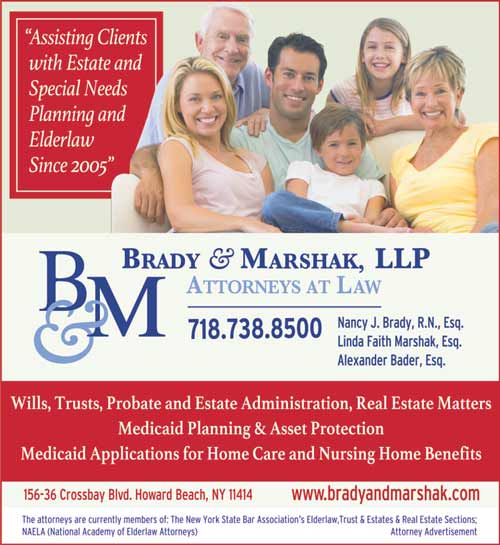by Nancy J. Brady, RN, Esq., partner, Brady & Marshak, LLP, Attorneys at Law
As most people know, a last will and testament is a document, prepared by an attorney to serve as evidence of one’s last wishes regarding how assets and belongings should be distributed after the individual passes away. A will can serve several other purposes, as summarized below:
1. In a will, a person of your choice can be named to represent you in distribution of your estate. This person is known as the “executor.”
2. The will can include certain clauses for estate tax planning – if the estate is large, language in the will can delineate the plan for the surviving spouse’s estate – to ultimately minimize taxes on the death of the second, or surviving spouse.
3. If you have minor children (under age 18), you can include provisions to name your preference for guardians to take care of them personally and financially.
4. If you have disabled children of any age, trust instructions can be included in the will in order to have the disabled individual’s inheritance separate, and not jeopardize any benefits they may be receiving.
5. If you are inclined to make gifts of your estate to charity, the charities can be named in the will.
6. A valid will can streamline the probate process because your wishes are in writing. Without a will in place, determining who is to inherit and petitioning court accordingly may take more time.
7. In a will you can make provisions for specific amounts to be gifted to people.
8. You should not rely on documenting your wishes for a funeral in your will – the will might not be located or looked at until after your services and burial.
9. You should have a will to ensure your wishes are carried out, and to make things a little bit easier for your loved ones.
10. If you don’t have a will, the NYS statute regarding laws of intestacy will determine who will inherit your estate. The statute may not accomplish your wishes, and it is simple enough to have a will completed.
This article is not intended as a substitute for individual legal advice, but provided for educational and informational purposes only, for those living in New York State.
(click to enlarge)

